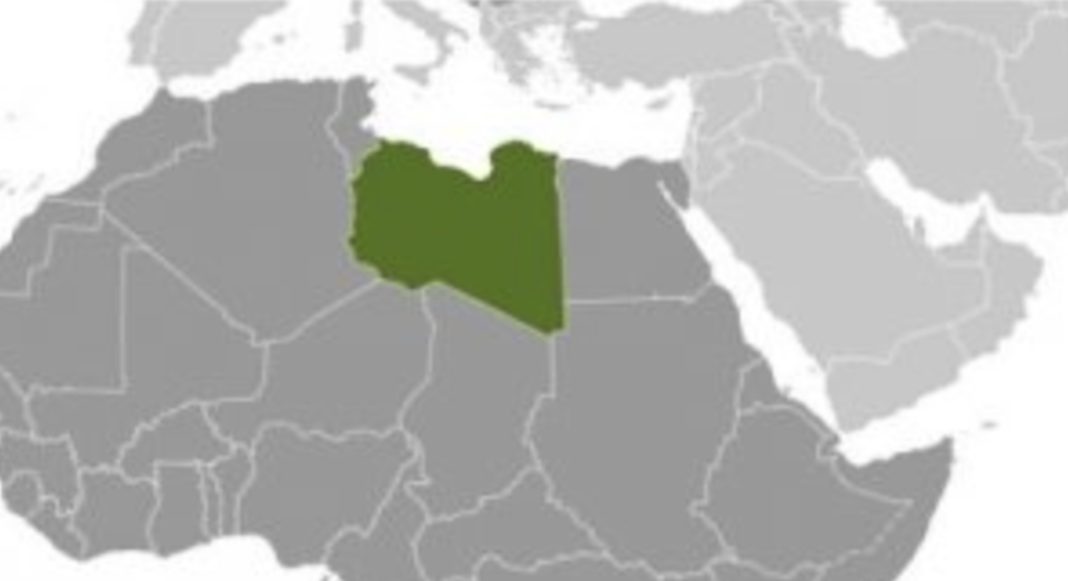By Janet Ekstract
İSTANBUL – Libya’s upcoming elections set for December 24 have been fraught with controversy due to disagreements between government factions between western and eastern Libya that has led analysts and experts to speculate about whether elections will go off without a hitch. While major players are urging Libya to maintain its original plan to hold presidential elections on December 24 – there are still sticking points that need ironing out.
On Friday, in Paris, leaders from France, Libya, Germany, Italy, Egypt along with US Vice-President Kamala Harris met for an international conference to ensure support for the upcoming elections as well as to discuss the withdrawal of foreign forces that still remain in the North African nation. A statement released after the conference stated: “We stress the importance for all Libyan stakeholders to mobilize resolutely in favor of the organization of free, fair, inclusive and credible presidential and legislative elections on December 24, 2021.”
High hopes are riding on these elections after a prolonged UN-backed peace process whose aim has been to end a decade of violent chaos that put regional powers at odds and threatened to undermine Mediterranean stability after the uprising against Moammar Gaddafi in 2011. Now that Gaddafi’s son is on the ballot as well as strongman and the general of Libya’s eastern government – Khalifa Haftar – the election process promises to be fraught with uncertainty.
With just six weeks to go, voting for a new president and parliament are very much in doubt due to disputes between rival Libyan factions and political bodies about the rules for the electoral schedule and who is eligible to run. Now major world powers have indicated they support an electoral process labeled as “starting” on December 24 without the previous demand for both votes to happen on the same day.
Meanwhile, a number of major players agree that there is an urgency to immediately create a new election law. Italian Prime Minister Mario Draghi said this must happen “with the agreement of everyone…not in the coming weeks, but in the coming days.” Libya’s interim Prime Minister Abdul Hamid Dbeibah commented that he already stressed urgent changes during a meeting on electoral rules but rival Libyan political bodies are going back and forth about it. There still is no agreement on the constitutional basis for the election or whether Debeibah who appears to be a frontrunner for president will be allowed to register before the vote even after he promised not to take part.
A long-awaited goal has been to solidify state institutions and to get foreign mercenaries out of Libya despite their being entrenched along front lines even after much urging by the UN and major powers to leave Libya. At Friday’s conference, the decision was made as announced in the statement “that individuals or entities, inside or outside of Libya, who might attempt to obstruct, undermine, manipulate or falsify the electoral process and the political transition” may face sanctions.
What makes Libya’s upcoming elections so unique is that the UN-backed process is supporting an “inclusive” procedure which means allowing all candidates even divisive factional leaders to run for office. The contentious part is still the removal of foreign mercenaries which appears to be a dubious process since reports indicated at least 20,000 foreign fighters and mercenaries are currently in Libya. While French President Emmanuel Macron said there is a commitment by eastern forces to remove 300 foreign mercenaries in a process that was agreed upon by rival eastern and western sides, Macron said when this happens then Russia and Turkey must pull out their fighters. As Macron remarked after the conference: “The mercenary withdrawal plan must be implemented. Russia and Turkey must withdraw their mercenaries without delay.”
Both Russia and Turkey had sent low-level representation to Friday’s conference and the Turkish government made its doubts known over wording in the final statement related to the departure of foreign forces. Russia’s Wagner Group still has its forces along with the eastern-based Libya National Army (LNA) as well as forces from Egypt and the UAE. Turkey maintains that its troop presence in Libya is based on an invitation from the UN-recognized government at the outset. German Chancellor Angela Merkel said: “There are still some reservations on the Turkish side but the Russia side has acknowledged that it could be done in a reciprocal way.” She added that the elections must happen in such a way that the results are unequivocally accepted. The result of Friday’s conference was to call for “free,” “credible,” and “inclusive” elections.




